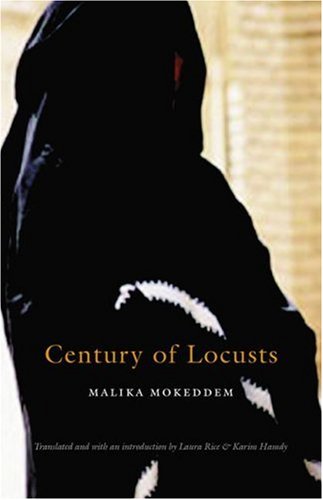Century of Locusts
Century of Locusts is a tragic tale about Bedouins in early 20th-century Algeria. Mahmoud is a stranger within his own tribe. He leaves to become an educated poet, only to be drawn back to the Tijani by his father’s deathbed command: to disinter his grandmother’s bones from the land the French colonists had stolen. While fulfilling this duty, Mahmoud becomes entangled with a madman. This madman burns down the colonist’s house, and Mahmoud is accused of the arson. Fleeing justice, he is caught in a storm with a slave, who becomes his wife. They escape and begin a life apart in the desert. Years later, Mahmoud’s wife is raped and murdered. With his daughter Yasmine, Mahmoud seeks the culprits and dares to teach his child to read and write. (“Writing is the nomadism of the spirit taking him through the desert of his need, along the dead-end paths of his melancholy.”) As he closes in on vengeance, he leaves Yasmine with a friendly Bedouin tribe, and the young girl begins to understand the prison that is the fate of women among the nomads.
Though the story gives the Western reader a glimpse into exotic customs and culture, Century of Locusts is spoiled by overwrought prose and convoluted sentences. (“Just an illusion of verticality, an unreal blue, an ethereal chimera. No sooner does the eye touch it than it falls to perdition along a landslide of infinities.”) Indeed, this is a tale meant for readers who are more captivated by language and ideas than story.










